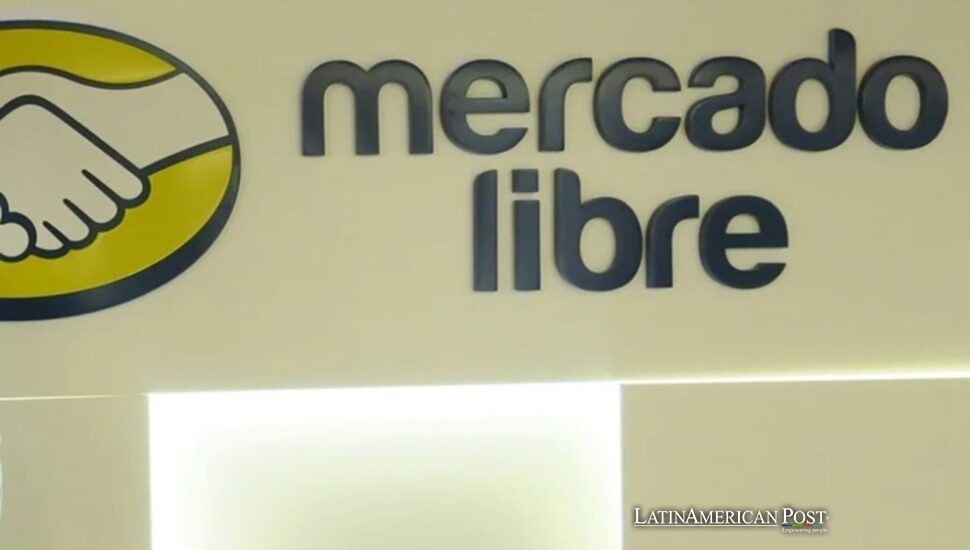Mercado Libre Strengthens Brazil’s E-Commerce Dominance with Bold Billions

Mercado Libre, Latin America’s leading e-commerce platform, has unveiled significant plans to invest 34 billion Brazilian reais in the country, underscoring the strategic importance of Brazil to its global footprint. The initiative aims to expand logistics, technology, and job opportunities.
Brazil’s Role as a Key Market
Over the past decade, Brazil has emerged as a powerhouse for digital commerce, spurred by rapid internet penetration, a growing middle class, and widespread smartphone adoption. The decision by Mercado Libre to channel 34 billion reais (approximately USD 5.76 billion or EUR 5.32 billion) into the country this year signals not only its ongoing confidence in the Brazilian economy but also the region’s readiness to embrace innovative retail solutions. With this bold commitment, the Argentina-born platform seeks to cement its leadership in a market known for fierce competition from both domestic and international players.
President Luiz Inácio Lula da Silva was present at the official ceremony in Cajamar, São Paulo state, where he praised Mercado Libre’s significant infusion of capital. Lula’s administration has placed emphasis on attracting foreign and domestic investment, viewing it as a critical catalyst for job creation and sustainable growth. By underscoring the partnership between the public and private sectors, the event highlighted Brazil’s consistent potential for international business ventures. Lula’s remarks, emphasizing his “joy” at the confidence shown by companies like Mercado Libre, reflect the administration’s broader optimism about the country’s economic trajectory.
Fernando Yunes, Senior Vice President and leader of Mercado Libre in Brazil, offered insights into the company’s strategic rationale. Brazil, he explained, now accounts for a remarkable 50% of Mercado Libre’s total operations across Latin America. Although the company has robust presences in Mexico, Argentina, and other parts of the region, the Brazilian segment has become its crown jewel. This rapid ascension stems from several factors: the country’s large population of over 210 million, accelerating consumer interest in online shopping, and a flourishing digital ecosystem that is gradually breaking down traditional barriers to e-commerce.
In fact, Mercado Libre already dominates roughly 40% of the country’s e-commerce space, illustrating the fierce devotion of Brazilian online shoppers. Such market leadership also reflects the platform’s breadth of offerings, spanning everything from electronics and fashion to household essentials. The firm’s decision to deepen its commitment here is a direct response to the tremendous growth opportunities that remain. Despite its already significant footprint, Mercado Libre sees room for expansion across various niches and customer demographics, particularly as more Brazilians gain access to reliable, high-speed internet.
At the heart of this strategy lies the acknowledgment that convenience is king. Today’s Brazilian consumers place a high premium on seamless user experiences, competitive pricing, and fast delivery. Mercado Libre’s plan to fortify its logistics networks, build more distribution centers, and employ advanced technology aims to ensure it meets these growing expectations. While competition in Brazilian e-commerce is cutthroat—especially from established global entities—Mercado Libre’s continued investments indicate its preparedness to stand firm at the forefront of the industry.
Expanding Logistics and Technology
Central to Mercado Libre’s multi-billion-reais commitment is a significant expansion of its logistics infrastructure. Six new warehouses and distribution centers will complement the fifteen already in operation nationwide. These facilities will be strategically positioned to improve delivery times and serve diverse regions, from metropolitan hubs like São Paulo and Rio de Janeiro to more remote areas in the North and Northeast. By increasing its physical presence, Mercado Libre aims to reduce last-mile delivery challenges, one of the biggest hurdles in e-commerce fulfillment across Brazil’s vast geography.
The company also recognizes that scaling up logistics is only part of the equation. Cutting-edge technology must power every stage of the purchasing process. From AI-driven recommendation systems that tailor product suggestions to individual users, to robust data analytics that help anticipate demand fluctuations, Mercado Libre’s tech innovations are designed to keep customers engaged and satisfied. Security is another crucial factor—both for buyers and sellers—as e-commerce platforms must maintain rigorous safeguards to protect personal data and ensure fraud prevention. By allocating funds to bolster these technology-driven features, Mercado Libre signals its commitment to staying ahead of market trends and sustaining user trust.
Moreover, the integration of fintech solutions remains a core pillar in the company’s growth formula. Mercado Pago, the firm’s online payments arm, has already gained traction in multiple Latin American countries, providing secure and convenient payment methods for millions of shoppers. In Brazil, where a large segment of the population is either unbanked or underbanked, the expansion of accessible digital financial services can spur inclusive growth, supporting small and medium enterprises and opening doors for entrepreneurial ventures.
Job Creation and Future Outlook
Beyond infrastructure and technology, Mercado Libre’s ambitious plan underscores a commitment to social and economic development. As part of its growth roadmap, the company intends to hire 14,000 additional employees this year in Brazil alone, bringing its total local workforce to around 50,000. These jobs will span diverse roles—ranging from warehouse operations and delivery logistics to data science and customer service. Such a broad recruitment drive is not merely about scaling up; it is also about investing in a talent pipeline that can support the company’s evolving needs and foster innovation at every level.
President Lula da Silva’s administration has placed job creation at the center of its economic agenda, seeing it as a fundamental driver of social progress. Mercado Libre’s pledge of thousands of new opportunities is therefore welcomed by government officials and local communities alike. As more Brazilians enter the formal workforce in the logistics and technology sectors, the country stands to benefit from the multiplier effect that stable employment brings: increased consumer spending, stronger local businesses, and enhanced economic resilience.
Looking ahead, Mercado Libre’s strategy in Brazil appears poised for long-term sustainability. The synergy between e-commerce, fintech, and logistics places the company at a unique vantage point to offer a holistic suite of services that many competitors struggle to replicate. Furthermore, its decision to keep investing heavily during times of global market uncertainty demonstrates a calculated confidence in Brazil’s potential for continuous digital expansion.
In the broader Latin American context, Mercado Libre’s stance in Brazil will undoubtedly influence how it positions itself in other regions. Success in such a massive, competitive market can open doors for deeper penetration into emerging economies where online retail is still in its infancy. By learning from the complexities of Brazil—where logistics, infrastructure, and consumer preferences vary widely by region—Mercado Libre refines its business model for adaptation and replication.
As consumer behaviors continue to evolve, the company’s dedication to bolstering technology, logistics, and human capital becomes increasingly crucial. In the race to dominate the e-commerce sphere, those who prioritize seamless experiences, inclusive financial tools, and efficient distribution channels will stand out. With its bold, multi-billion-reais investment, Mercado Libre is signaling that it intends to remain a fixture not only in Brazil’s online retail sector, but also as a global leader reshaping how consumers shop in the digital age.
Also Read: Latin American Firms in Spain Weather Global Tariffs Shifts
By reinforcing its already robust presence, Mercado Libre’s expansion underscores Brazil’s continuing attraction for international capital and entrepreneurial ventures. While the e-commerce domain grows more crowded each year, the company’s strategic mix of fintech integration, infrastructure development, and massive hiring initiatives could keep it ahead of the curve. In doing so, Mercado Libre is also paving the way for further digital inclusion and economic vitality, reflecting the transformative power that sustained investment can have in one of the world’s most dynamic marketplaces.





